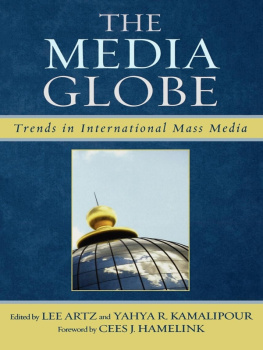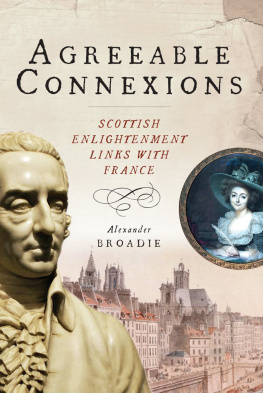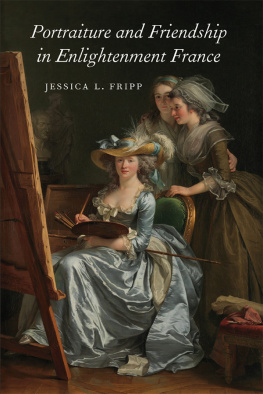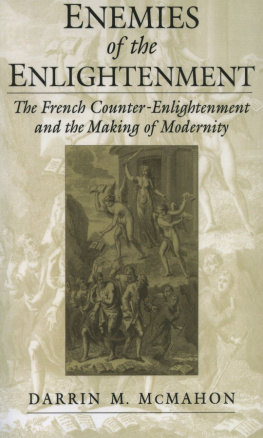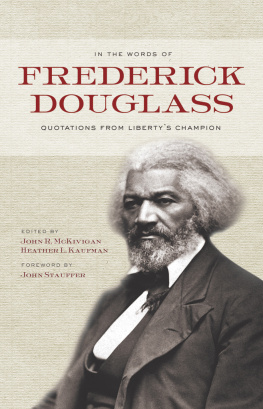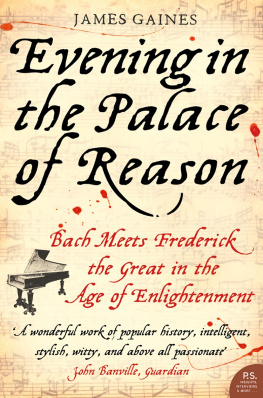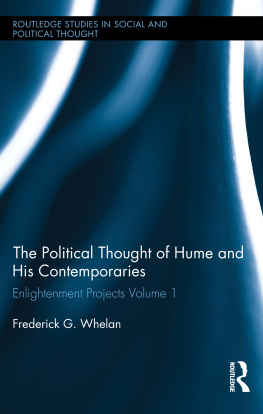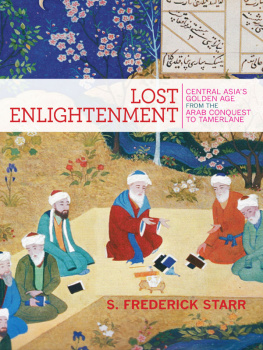Though the teacher-scholar is supposed to be the ideal in American higher education, only a few individuals actually attain that status. The late Frederick B. Artz was one of them.
During his years of active service on the Oberlin College faculty (1924-196l) he was a legendary classroom figure. Some of his earliest students still speak in awe of his lectures more than half a century later. At the same time Artz established an international reputation as a publishing scholar, as evidenced by his inclusion in Whos Who in the World. The publication of his From the Renaissance to Romanticism in a Japanese translation in 1983 shows that the international acclaim for his work continues posthumously.
Artzs original interest was intellectual history, but his teachers in graduate school regarded that new field with suspicion and urged him to specialize in something more traditional. Accordingly, his first two books were in straight political history and made him a leading authority on early nineteenth-century Europe. After that Artz felt free to return to his first love.
The results were his celebrated course European Intellectual History from St. Augustine to Marx and a series of six books on the history of ideas. Only two of those were written while Artz was still on active duty. The other four, including this one, represent post-retirement momentum from a revived enthusiasm of early manhood.
Robert E. Neil
Oberlin College
This is an introduction to the principal writers of the Enlightenment in Eighteenth Century France. French thinkers of this century made a long series of devastating attacks on old ideas, usages, and institutions that had been handed down from the past. And, at the same time, these thinkers proposed a series of thorough-going reforms in social, economic, political, religious, and educational ideas and institutions.
France was the center of the Enlightenment of the Eighteenth Century, but there were important thinkers that belong to the movement in other countries, such as Vico and Beccaria in Italy, Lessing, Herder, and Kant in Germany, and Hume, Adam Smith, and Bentham in Britain. France, though, took the lead, and, outside of France, there were no thinkers of quite the influence of the French writers, Voltaire and Rousseau.
The whole climate of opinion was changed in France and the rest of Western Europe by these publicists and propagandists, or as they were commonly called, the Philosophes. The Eighteenth Century in France began with certain currents of opinion in the ascendancy, namely, divine right and absolute monarchy, uniformity of religious opinion (Gallicanism in France), a controlled economy (Mercantilism), and Classicism in art and literature. And the Eighteenth Century ended with a widespread belief in some form of representative and Liberal government, with the idea that religion is an individual matter, with Laissez-faire economics, and with growing Romanticism in the arts. This change of opinion was largely due to the Philosophes.
The writers of the Nineteenth Century regarded the French Philosophes of the Eighteenth Century as naive and superficial. But the anti-intellectual movements of the Twentieth Century and its totalitarian regimes make the Philosophes emphasis on reason, common sense, and humanitarianism seem refreshing. Many of the ideas of the Philosophes had been stated or suggested by earlier thinkers, especially by those of the Seventeenth Century, but the Philosophes in giving these ideas an order and a more practical application can be considered the founders or extenders of the modern social sciences: political science, economics, sociology, ethnology, anthropology, history, and psychology.
Beneath the surface of the Eighteenth Century, there was, in France, political discontent on the part of the professional classes. Social discontent also arose as the middle classes contemplated the magnitude of the burdens imposed by the state and the inequities of the privileges enjoyed by the nobility and the clergy, and intellectual discontent grew against the tyranny of an absolute monarchy claiming to rule by divine right and the oppression of a decadent and obscurantist Church. Against this background, the Philosophes preached reform rather than revolution. Nevertheless, some of the Philosophes foresaw revolution. In 1762 Rousseau wrote in Emile, we are approaching a state of crisis and a century of revolution, and in 1764 Voltaire said, everything I see sows the seeds of revolution which will not fail to come. The Philosophes preached the pursuit of happiness and virtue. The Greeks had preferred wisdom to happiness, the Romans power, and the Middle Ages holiness.
Napoleon once said that cannon destroyed the feudal order but ink destroyed the old monarchy. That is too simple an explanation. The French Revolution was actually the result of both: abuses of all kinds in the political, economic, and social order of the Old Regime and propaganda for all types of change. In spite of the excesses of the French Revolution and the Conservative reaction that followed it, the Philosophes ideas of Liberalism and democracy went on to mold much of the thinking and institutions of the Western World.
I have throughout put all book titles in English, and I have consistently used Philosophe as an English word for the Eighteenth Century publicists and propagandists. Many of the quotations have been shortened, and to make for easier reading I have deliberately omitted the use of three dots. I am indebted to a number of colleagues for help: Robert J. Soucy, Donald M. Love, Robert E. Neil, Vinio Rossi, Peter Gay, Arthur M. Wilson, and Crane Brinton.
FREDERICK B. ARTZ
Oberlin, Ohio
January 1, 1968
THE PRECURSORS
OF THE PHILOSOPHES
1.The More Remote Precursors
The writers of every age, if they pay any attention to the past, are given to choosing from earlier authors those whose views are sympathetic with their own. So we see the Philosophes ranging over the past, and praising writers who in some degree had ideas similar to their own, and borrowing freely from these authors.
Most of the thinkers of the Eighteenth Century were early trained in the Greek and Latin classics which were still the basis of education, and the classics, either in the original languages or in translation, with their generally worldly attitudes were used as examples of more reasonable ways of thinking than those set up by Christianity. The common attitude of Eighteenth Century intellectuals toward antiquity was one of admiration, but they usually opposed a mere antiquarianism, and held that modern man should imitate only what was worth imitating.




